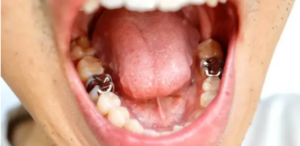Dental implants Adelaide are a permanent way of replacing missing teeth. They can replace one or several teeth, offering a more natural smile and improved oral health. They are also a popular alternative to dentures.
 The first step of the process is a consultation with your dentist. It will include an examination of your oral health and jawbone density.
The first step of the process is a consultation with your dentist. It will include an examination of your oral health and jawbone density.
Cost
The cost is often a significant factor when deciding to undergo dental implants. However, it is crucial to consider the long-term benefits of these tooth replacements. Implants offer superior durability and function than dentures or bridges. They are also long-lasting as long as you accompany them it proper care.
Dental implants are popular as the gold standard for replacing missing teeth and can replace a single tooth, several teeth or even an entire arch of teeth. They are considered the best solution for tooth replacement as they mimic natural teeth look, feel and function.
The cost of dental implants can greatly vary depending on your dentist, treatment plan and location. For example, dental implants in significant cities are more expensive than those in rural areas. It is also essential to consider whether you have private health insurance that covers the procedure. Some insurers include implants as part of their comprehensive dental coverage policies. Others offer separate plans for implants.
Advantages
Dental implants are a great way to replace one or more missing teeth. They look natural and feel more comfortable than other tooth replacement options. They are also effective in preventing bone loss in the jaw. In addition, they can improve your smile and help you eat more comfortably.
A dental implant is a titanium post that acts as an artificial tooth root. It is surgically inserted into the jawbone and provides a tough foundation for fixed or removable replacement teeth. For professional dental implants Adelaide services, click here.
The initial process for getting dental implants may involve a consultation with specialists, including a doctor who specialises in conditions of the mouth and jaw (oral and maxillofacial surgeon), a dentist who treats structures that support teeth, such as gums and bones (periodontist), and a dentist who designs and fits artificial teeth (prosthodontist). This appointment will involve taking dental X-rays and 3D images.
Requirements
Dental implants can serve as a permanent tooth replacement solution considered safer and more reliable than other alternatives. They consist of a titanium screw fused with the jaw bone, supporting a customised artificial tooth. It makes them a natural-looking and more comfortable solution than bridges or dentures.
Aside from offering an attractive alternative to missing teeth, dental implants help prevent jawbone deterioration. The bone in the gap where a tooth is lost loses strength, and the jaw can deteriorate by 25% in just 15 years.
Implants are also easier to clean than other options. They can be thoroughly brushed and flossed like natural teeth, which helps keep them healthy. If you keep good oral hygiene, dental implants can last a lifetime. They also offer better value for money than other solutions. However, they are not suitable for everyone. A consultation is necessary to determine whether implants are the best option for you. For professional dental implants Adelaide services, click here.
Procedure
Dental implants are permanent, fixed replacements for missing teeth that help restore oral function and improve your smile. They look, feel and work like your natural teeth, and they don’t slip like removable dentures.
The procedure for getting dental implants in Adelaide involves a consultation and an examination of the mouth and jaw to assess the amount of bone and gum tissue available for an implant. X-rays and impressions (moulds) are also taken of the tooth area to determine the best placement for the implant.
On the day of surgery, you will be given a local anaesthetic to ensure you are comfortable throughout the procedure. Once the implants are placed, they’ll be covered with a crown to complete the treatment and look like your natural teeth. With proper care, your dental implants can last a lifetime. They can also help prevent a sunken facial appearance and help to keep your remaining teeth from shifting position.
 Different types of tooth fillings carry varying costs, depending on the type of material used. The most common materials include composite resin, ceramic, and glass ionomer. For professional
Different types of tooth fillings carry varying costs, depending on the type of material used. The most common materials include composite resin, ceramic, and glass ionomer. For professional